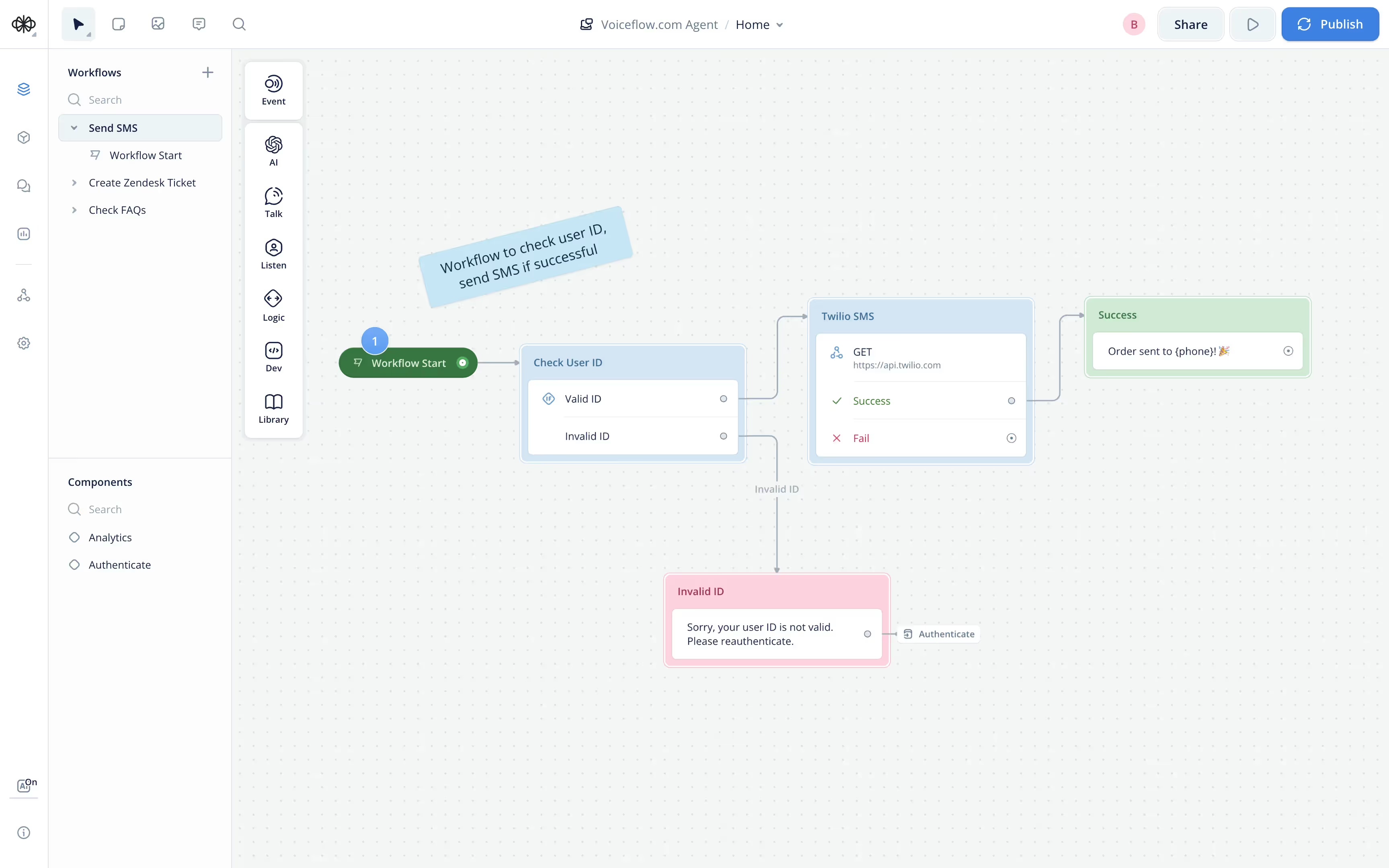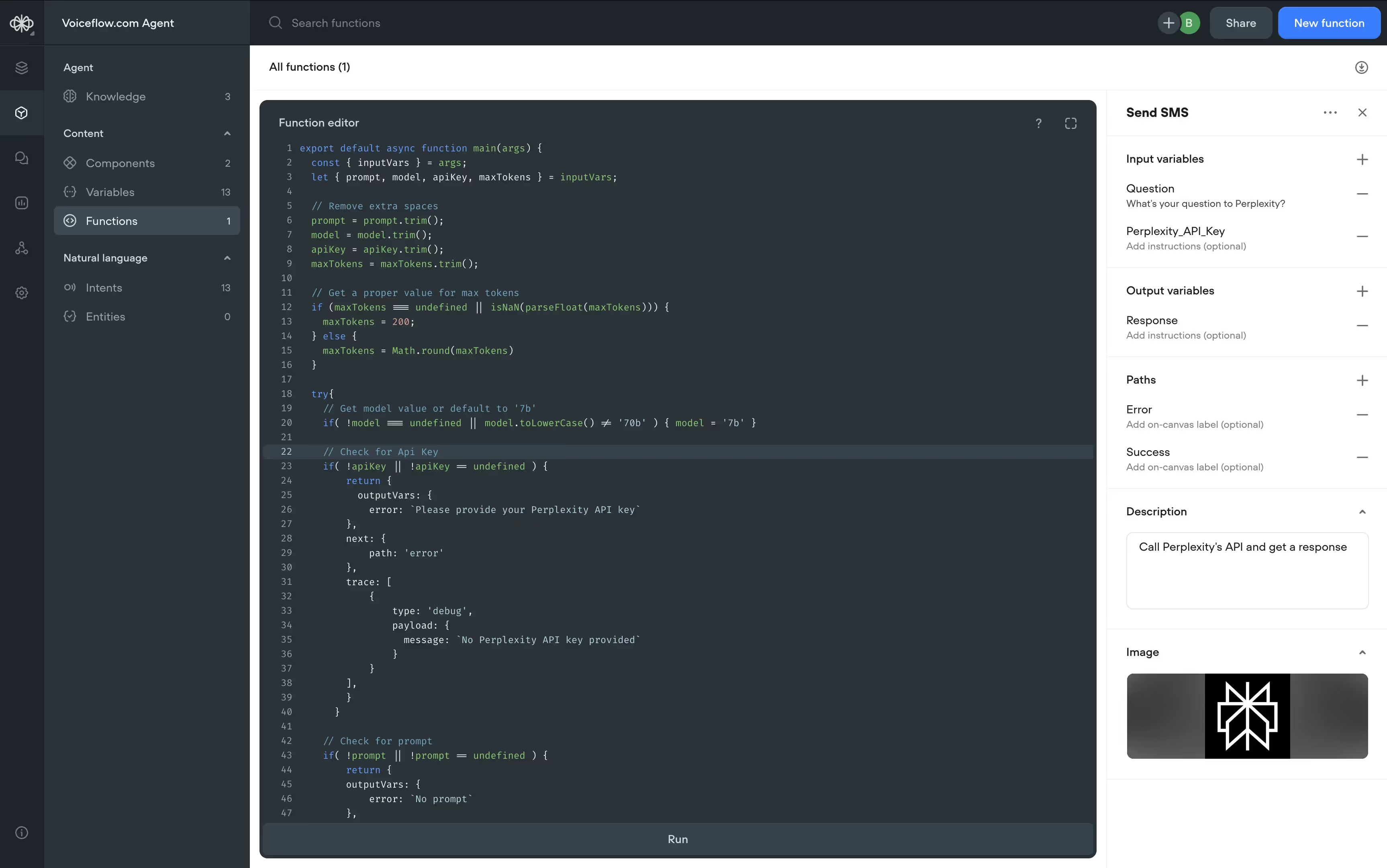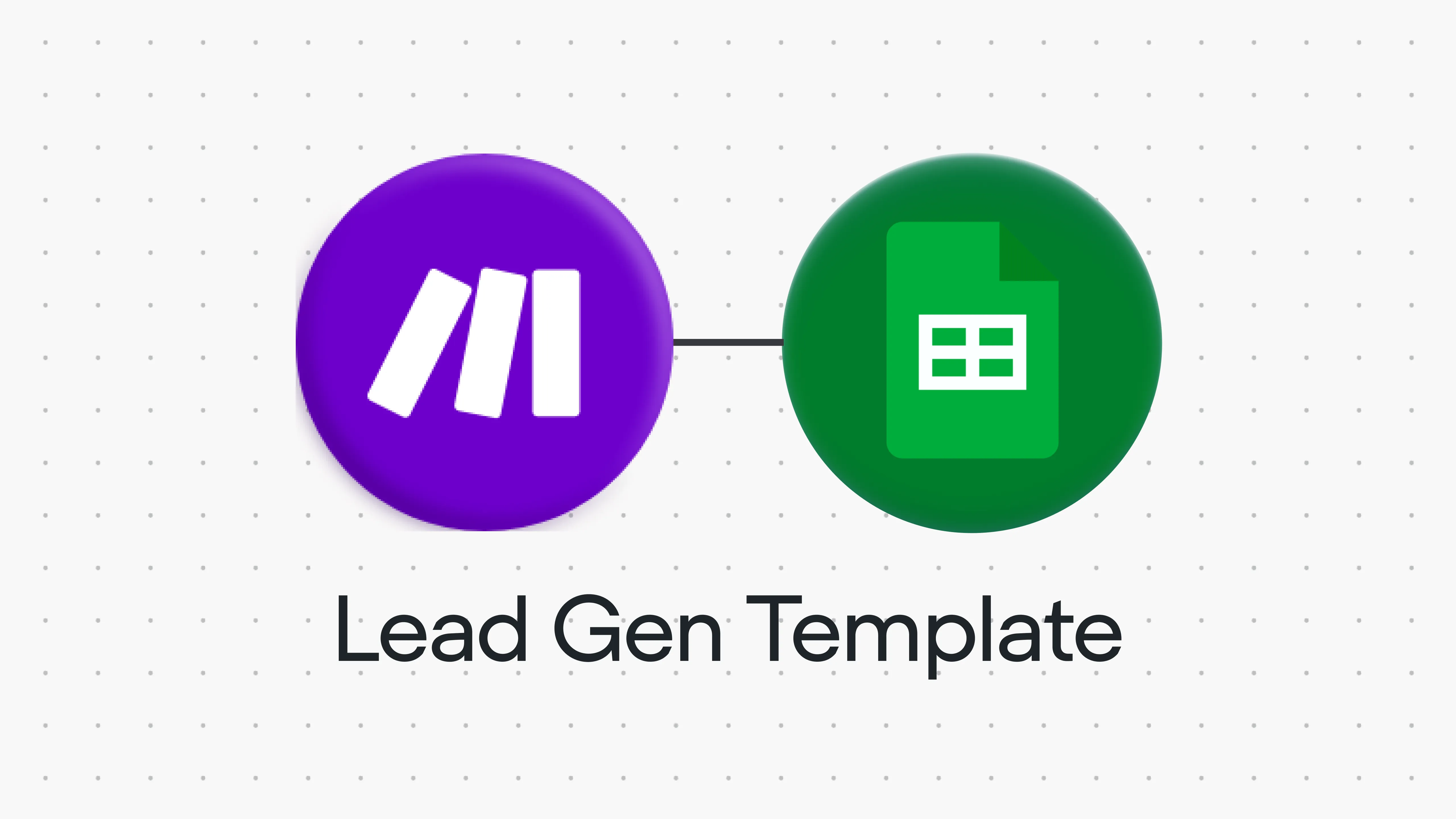AI Agent for Transportation Companies
Streamline logistics with AI agents, reducing manual tasks and enhancing customer interactions in transportation.

Managing logistics and customer queries can be overwhelming in the transportation industry. From tracking shipments to handling last-minute changes, teams often find themselves buried under a mountain of repetitive tasks that eat into valuable time—time better spent on strategic operations or improving service quality. The constant barrage of "Where's my package?" calls not only stretches resources thin but also leaves little room for proactive engagement with customers.
This is where Voiceflow steps in as your AI-driven ally. By using our conversational design platform, you can create intelligent agents tailored specifically for the unique challenges faced by transportation companies like yours. Imagine an agent capable of providing instant updates on shipment locations or assisting drivers en route without needing human intervention at every turn. These streamlined interactions reduce manual workload and enhance accuracy while freeing up your team to focus on what truly matters: delivering exceptional logistical solutions smoothly and efficiently.
Transportation Companies AI Agent Template
Tailored for transportation firms, this Advanced RAG Template efficiently manages real-time updates and support to keep operations running smoothly.
How Transportation Companies use Voiceflow
Real-Time Customer Support for Ticketing and Schedule Queries
Easily assist passengers with instant, accurate answers to ticketing and schedule inquiries using real-time AI agents.
Automated Incident Reporting and Response Coordination
Streamline your transportation company's incident reporting and response process with AI-driven automation for quicker resolutions.
Predictive Maintenance Alerts for Fleet Management
Stay ahead of breakdowns with predictive maintenance alerts that notify your fleet managers before issues arise.
Customized Travel Updates via Messaging Platforms
Easily deliver real-time travel updates directly to your customers through their preferred messaging platforms.
Build complex logic with ease
Make API calls mid-conversation
Execute custom code on demand
Trigger actions across your entire stack
Connect to your CRM, calendar, and internal tools via API
Design, test, and deploy—all in one platform
How it works
Transportation companies use Voiceflow to create AI agents that enhance customer service and streamline operations.



.avif)
Resources for
Transportation Companies
Resources for
Transportation Companies
Case Studies
Frequently asked questions
When travelers are rushing to catch a flight or manage their commute, waiting on hold for customer service can be frustrating. An AI chatbot helps transportation companies offer instant support by providing answers around the clock. Whether it's checking departure times, understanding ticket options, or tracking lost luggage in real-time, chatbots handle these frequent inquiries efficiently so human agents can focus on complex issues.
This means your customers get quicker resolutions without the wait and stress that often comes with traditional call centers. For instance, when there's an unexpected delay due to weather conditions or maintenance work, your AI agent can proactively notify passengers about alternative routes almost immediately—helping them adapt faster while maintaining satisfaction levels high even during disruptions.
In the logistics industry, managing communication is crucial yet can be a headache. A voice bot helps cut through clutter by handling routine queries such as tracking orders or scheduling deliveries, freeing your team to focus on complex issues that require human insight.
This means fewer errors and faster response times for tasks like end-to-end shipment updates or immediate alerts in case of delays. By automating these interactions, you not only streamline operations but also enhance customer satisfaction with quicker resolutions and 24/7 availability.
Absolutely, integrating a web-based AI agent with your existing transportation management systems (TMS) is not only possible but designed to be straightforward. By using Voiceflow's pre-built connectors and APIs, you can link your AI agent directly to the data flows within your TMS without needing extensive coding knowledge.
This means you can enhance real-time communication between dispatchers and drivers by pulling in live tracking information or automate routine inquiries about shipment statuses all from one place. The difference here is that this integration allows for smoother operations without disrupting the tools you're already comfortable using every day.
Training an AI assistant to handle common queries in public transport starts with gathering a comprehensive set of real-world questions that passengers frequently ask. This means diving into customer service logs, survey responses, and even social media mentions to understand the language and issues commuters face daily. Then, you need to ensure your AI understands these inquiries by using natural language processing models trained on diverse data sets reflective of this industry.
The difference comes when you continuously refine your model based on actual interactions over time. By analyzing where misunderstandings or dead ends occur for users—like confusion over ticket pricing versus schedule information—you can fine-tune response patterns accordingly. Incorporating feedback loops ensures that as routes change or new services launch, your AI remains up-to-date without major disruptions in its ability to assist travelers effectively.
Ready to explore how Voiceflow can help your team? Let’s talk.
















